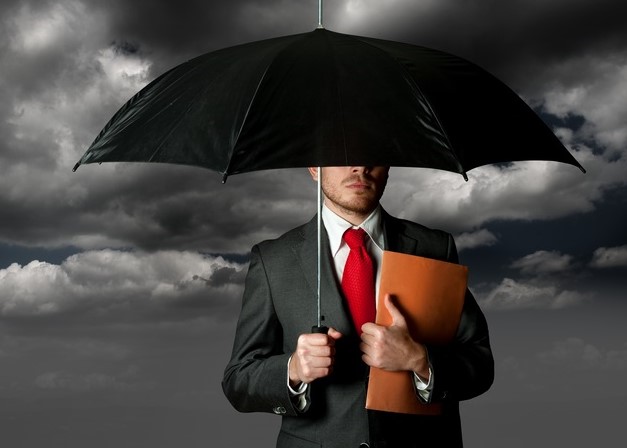
There is no doubt that small businesses are the engine behind the economy. But what you might know, is that according to the U.S. Small Business Administration, around half of all businesses start at home. And while running a business from home offers flexibility and freedom, it also comes with its own set of risks. While you may enjoy being your own boss, it’s essential to protect your business with the right insurance coverage. Whether you’re a consultant, baker, or photographer, understanding your insurance options can safeguard your financial future. Here’s a comprehensive look at why home-based business insurance is crucial and what policies you should consider.
Why Home-Based Businesses Need Insurance
Many home business owners assume their homeowner’s insurance policy will cover them if something goes wrong. Homeowner’s insurance, however, is designed for personal use, not commercial activities. If a client visits your home office and suffers an injury, or if your business equipment is stolen, your homeowner’s policy likely won’t cover the costs.
Even if you work alone or only offer virtual services, your business still faces risks like lawsuits, data breaches, and property damage. That’s where business insurance comes in, offering vital protection to keep your business running smoothly in the face of unexpected challenges.
Types of Insurance for Home-Based Businesses
There are several types of insurance policies available to home business owners. Here’s a breakdown of the most common options:
- General Liability Insurance: This is one of the most important policies for any home business. General liability insurance covers customer injuries and property damage, which can occur even in home-based environments. For instance, if a client slips while visiting your home office, this policy would cover their medical expenses and protect you from costly lawsuits.
Best For:
- Customer bodily injuries
- Property damage
- Personal and advertising injury claims
2. Business Owner’s Policy (BOP): A Business Owner’s Policy bundles general liability insurance with commercial property insurance at a reduced rate. This is ideal for home-based businesses, especially those that own valuable equipment or inventory.
Best For:
- Customer injuries and property damage
- Business property protection
3. Professional Liability Insurance: Also known as errors and omissions (E&O) insurance, this policy protects you from lawsuits related to the quality of your services. If a client claims that you made a mistake or missed a deadline, professional liability insurance will cover legal fees, settlements, or judgements.
Best For:
- Negligence claims
- Missed deadlines
- Service errors
4. Cyber Insurance: In today’s digital world, cyber threats are a growing concern for small businesses. If your business handles sensitive customer information, such as credit card numbers or personal data, cyber insurance is critical. It covers costs associated with data breaches, including customer notification and fraud monitoring.
Best For:
- Data breaches
- Cyberattacks
- Customer notification costs
5. Workers’ Compensation Insurance: If you have employees, even just one, most states require you to carry workers’ compensation insurance. This policy covers medical expenses and lost wages if an employee is injured on the job. It’s also a good idea for sole proprietors to consider, as personal health insurance often doesn’t cover work-related injuries.
Best For:
- Employee injuries
- Disability benefits
- Lawsuits over workplace injuries
6. Commercial Auto Insurance: If you use a vehicle for business purposes, such as making deliveries or visiting clients, personal auto insurance likely won’t cover you in case of an accident. Commercial auto insurance covers vehicles owned by your business and provides liability protection for accidents.
Best For:
- Business-owned vehicles
- Legal fees from auto accidents
- Theft and vandalism
Special Considerations for Home-Based Businesses
Depending on the type of business you operate, you may need additional coverage:
- Product Liability Insurance: If you sell physical products, like baked goods or handmade crafts, product liability insurance protects you if someone claims your product caused harm or injury.
- Tools and Equipment Insurance: For businesses that rely on specialized equipment, this policy helps cover the cost of repairs or replacements if your tools are lost, stolen, or damaged.
- Business Interruption Insurance: This policy covers lost income if your business is forced to close temporarily due to a covered event like a fire or flood.
How to Choose the Right Coverage
The amount and type of insurance you need will depend on several factors, including the nature of your business, the value of your equipment, and whether you have employees. Here are some key elements insurance companies consider when determining your coverage:
- Business services offered
- Business property and equipment
- Number of employees
- Policy limits and deductibles
Take the time to evaluate your business needs and find the right insurance to protect your home-based venture. For all small business owners, whether you’re a home-based small business or not, even the smallest mishaps can potentially lead to large financial losses. Without the right coverage, a lawsuit, accident, or equipment failure could threaten the survival of your business. Insurance not only provides peace of mind but also ensures you can recover and keep your business moving forward, no matter what challenges arise.
Find a Home-Based Business to Start-Up >>> Hundreds of Business Listings.













































